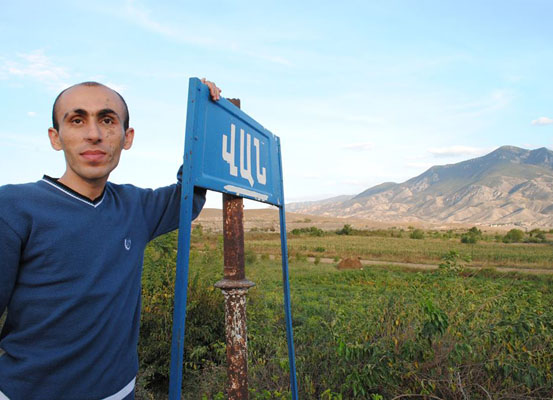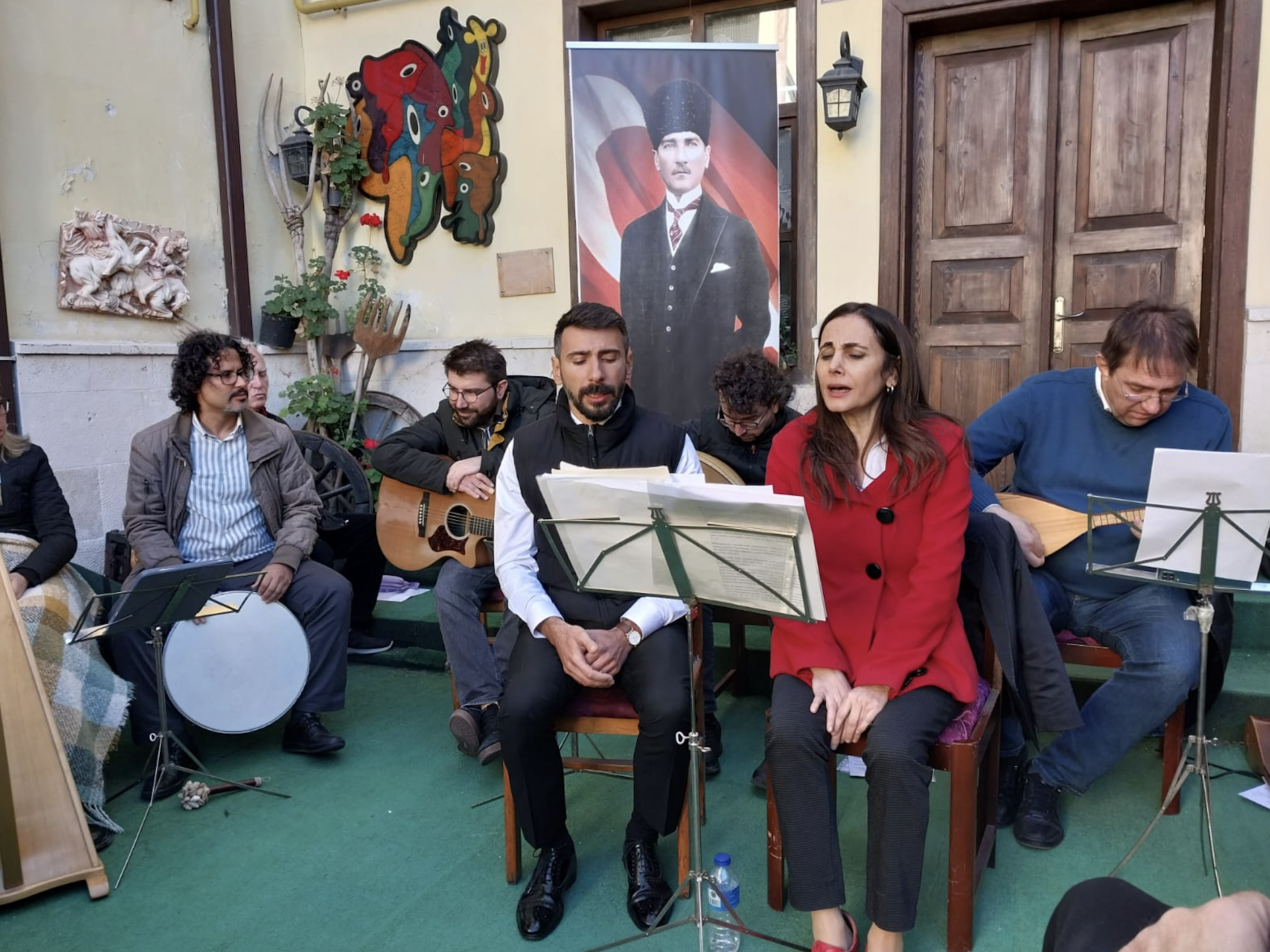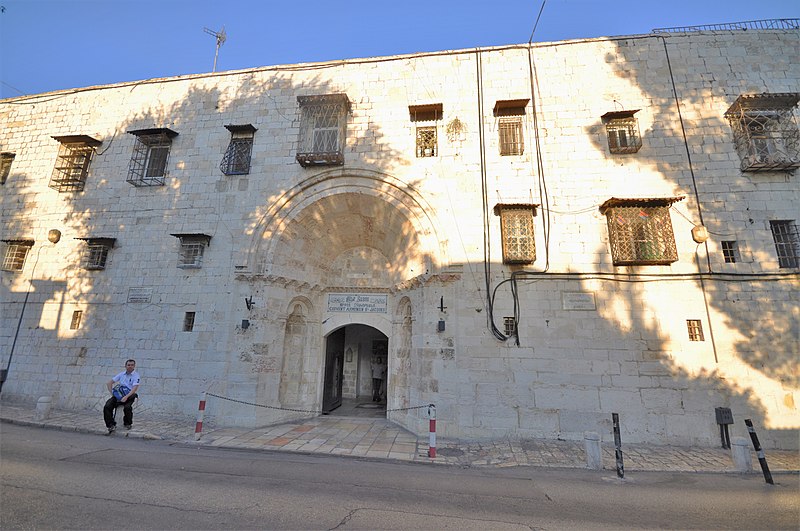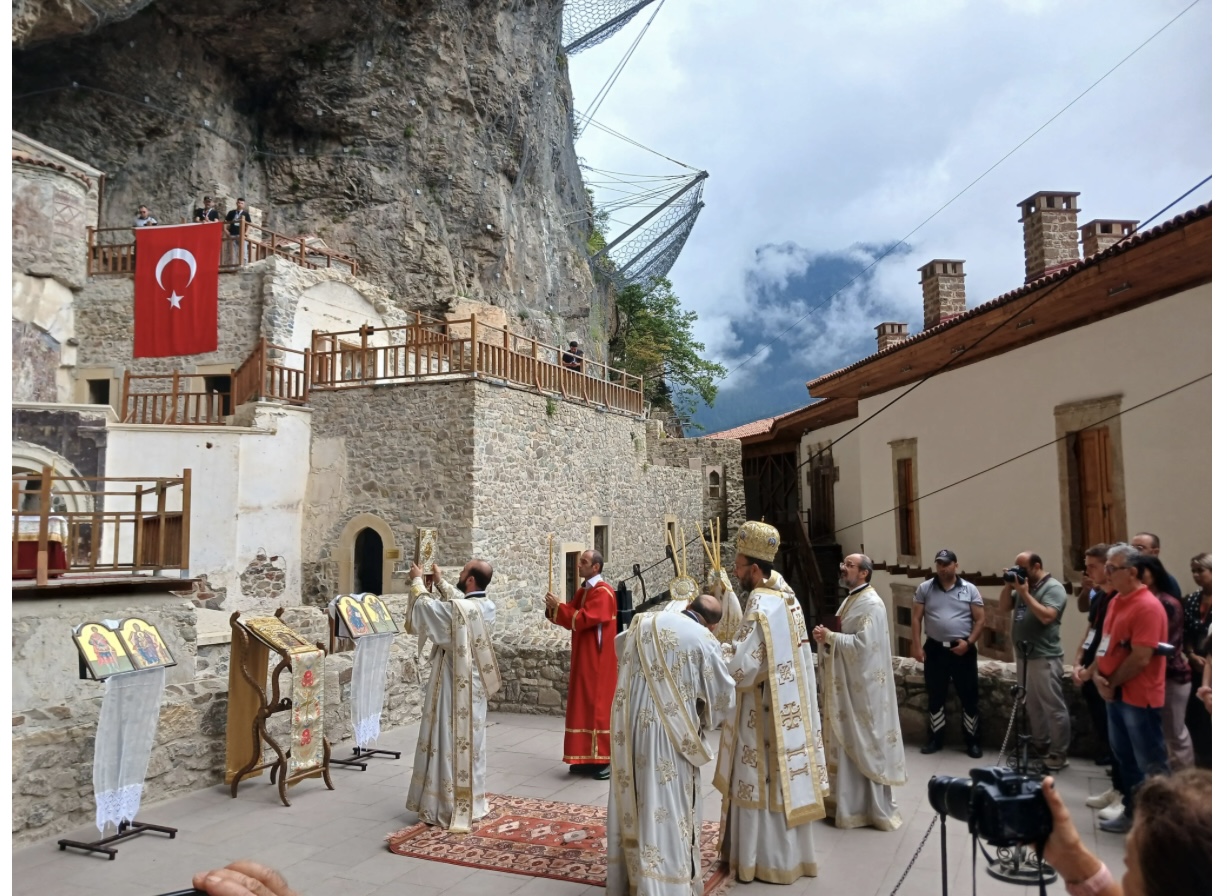Artak Beglaryan, who during the Karabakh War, at the age of six, lost his sight when a landmine they played with in their back garden exploded and also lost his father at the same war, did not give up, and has today become the press secretary of the Prime Minister of Karabakh.
ALİNE OZİNİAN alineozinian@gmail.com
Beglaryan, who began his education at a school for the blind and visually impaired and continued his studies at the best universities in England and the US, returned to his country to serve, and at the young age of 26, accumulated a list of successes that would fit into a few life times.
Artak Beglaryan has, occupied official positions in Karabakh for many years. He was an adviser to the President before he became press secretary. Speaking with maturity and experience that belies his 26 years, explains his success in the face of such a great physical disadvantage with the words, “I don’t have dreams, I have plans!”
For many years, Artak Beglaryan lived abroad. After graduating from the Yerevan State University Department of International Relations, he studied at the University of Thessaloniki in Greece, followed by UCL in London, and Tufts and Fletcher Universities in the USA.
A landmine and a hammer
Before we discuss the problems of Karabakh, the issue of recognition and other political agenda, I ask Beglaryan, “Can we first speak about being blind and achieving so much?” He smiles, and replies, “We can begin wherever you wish.”
When I ask him how he lost his sight, he relates the day as if he was living through it again.
“April 7, 1995. That was the day I became blind. We lived in the war itself during those years. As children, we knew weapons, and bullets, in fact, we knew what they were used for, and that they were dangerous for us. On that day, when we, four boys, were playing in our back garden, we found something we didn’t recognize. The bravest of us struck it with a hammer. We were all heavily injured. All my bones were broken, and I lost my eyesight. My friends were heavily injured as well. They lost their hands, arms, and feet.”
A blind child who did the washing
The landmine six-year old Artak and his friends thought was a toy, became the turning point of his story. After he regained his health, following months of treatment and rehabilitation, he left Stepanagerd and his family, and was transferred to a special school for the blind in Yerevan. Beglaryan was confident at that age too that he would pass the exam necessary to gain entry to the school. He developed his habit of an optimistic outlook on life from that early age: “Is it difficult becoming blind at the age of six? It’s not easy, but leaving home was more difficult. In my opinion, becoming blind at the age of six is more advantageous than becoming blind at a later age; adaptation is easier, it is easier to accept. There was also a good side to leaving home. If I had remained at home, I wouldn’t have learned how to do anything, but at school, I began to do the washing at the age of 10. If I can do all work such as cooking and cleaning by myself, I owe it to those years I spent at school,” says Beglaryan, and expresses not the slightest doubt that everything in life is part of a struggle.
Young people must get to know the world
Beglaryan lost his father at war, in the year of 1993. During those years, his mother and two brothers were everything to him. They supported him in everything he showed interest in, and expressed their support at every opportunity. Artak had different ideas. He had made his plan: After studying at good schools and universities abroad, he would serve Karabagh.
He doesn’t even consider the difficulties of living in cities he was alien to worthy of talking about: “A new city isn’t difficult really, during the first days, someone will often come and show me the place I will stay, the university, the supermarket and a few other places. You determine a route, and start living. No problems so far, but if the route you use is blocked for some reason, yes, that can create a problem. But one needs some adventure in life, right? You find a way to overcome it somehow.” Suddenly, he laughs sincerely, but then gets serious again: “You shouldn’t be overcome with fear and panic. You have to think that there must be a second way, and that goes for everyone…”
Beglaryan attaches great importance to education, and especially education abroad. “The young must go. They must not only understand the world outside, but they must also look to Armenia and Karabakh from the outside,” says Beglaryan, who thinks that Armenia and Karabakh need more young minds.
“I returned, because I left knowing I would return. It is difficult for young people to leave the US or Europe and return. But they should, staying there could have suited me as well, but believe me, it is sometimes better to choose the difficult option.”
To live every moment to the full
I cannot help but ask Beglaryan: “During your long years of education, and the constant striving for success, did you never feel you were tired, did you never consider giving up?” He replies without a moment of hesitation: “We have more spare time than you. You get distracted by television and what not, and you need to spend time to focus. People like me have more time to study…” His determination is not only about education and his political career. Quite active on social media, Artak also has a beautiful voice. He shows me the video of the hymn he recited at the grand cathedral when they visited Ani. After photographs of his godchildren and him folk dancing at festivals in Karabagh, he shows me photographs of himself at the summit of Mount Ararat.
“I often have plans, not dreams, and climbing Mount Ararat was one of them; it is the will that counts,” says Beglaryan. We met to talk about Karabakh, but we were drawn into his personal story. Perhaps the true victories and real gains are concealed in what Artak told us. The struggle for the individual to exist and realize himself, must be the most meaningful struggle in life.





